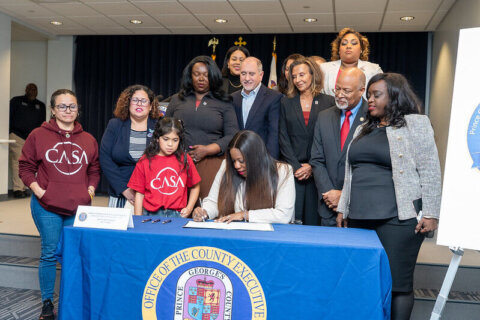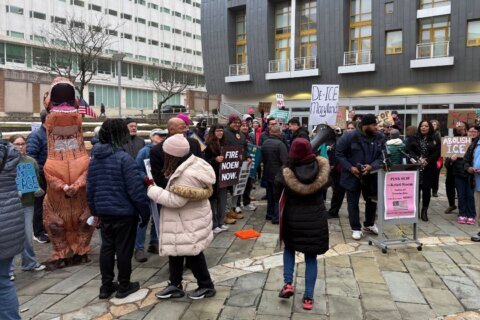What does it take so people can actually age in place? That’s a question a Prince George’s County, Maryland, council member asked.
Jolene Ivey sponsored a bill that could make your next new home more inclusive through a process called “universal design.”
“Maybe something happens to you like many, many people,” Ivey said. “Something happens to them, and they become permanently or temporarily disabled. It’s very, very common. Or maybe you have a family member who wants to be able to come visit you.”
Universal design is a concept that makes homes more accessible by providing a full bathroom and potential bedroom on the first floor, and doesn’t require anyone to climb even a single step to get inside.
“Most houses, when they’re built, will just be built automatically with what you would call a ‘zero entry.’ So they’d be able to get in without having to navigate stairs,” Ivey said. “The levers for your sinks and your doors work for you, even if you have some issues with your hands or your arms.”
Similar consideration is given to the walls along your stairwell, so that a stair lift can be added on if needed.
“Some of the things [we want] is just thinking ahead. They’re things that aren’t that expensive, most of them, at the time the house is being built,” Ivey said. “If you have to do it later, it can really add to the cost and you might not have time to think of all those things because the reason why you need these accommodations in your home is because something has happened to you or a loved one.”
If the bill passes, the new law would apply to about half of all new single-family homes being built in the county starting in 2026, as well as new apartments. Town houses and other dense, single family structures would be exempt, a key compromise that helped get the Maryland Building Industry Association on board with the measure.
Another key component for the MBIA’s support is the creation of a work group that would help create ground rules for other exemptions in the future.
“This is the first of its kind in the state, and we don’t know of any other jurisdictions in at least this area that have anything like this,” said MBIA CEO Lori Graf.
Affordability is also a concern — as Graf noted the soaring cost of construction material — along with high mortgage rates. She is worried some consumers might not want to pay extra for those items.
“We feel like we can probably work with some of the language of the bill; and with the work group, we should be able to get to a place that makes sense for everybody.”
The bill also allows for a waiver process that would exempt builders from having to go along with some universal design provisions. For instance, a new home that’s built on a hill might be impossible to access without some stairs. So another goal of the work group will be to come up with reasonable exemptions.
“Every project is different,” Graf said. “We support the legislation because that work group is in there, and we can flush through some of these more detailed nuances of universal design.”
Ivey said she had an addition built onto her home years ago because she had a hunch that an aging parent would need to move in with her, and then later on used those same amenities herself after having foot surgery.
“Being able to have that all on the first floor made my life easier,” Ivey said, adding that the additions made it possible for an aging parent to live with their family.
“If you want to be able to stay in your house, if you want people with disabilities to be able to be a part of your life, then you need to set your home up that way,” Ivey said.








